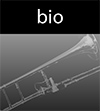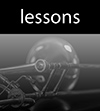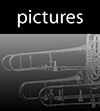Edwards Interview with Christian Griego
Christan: It seems like yesterday that we were at Tanglewood fitting the section and you were discussing your yearly schedule (symphony, solo, pops, Tanglewood summers, teaching). How have the physical demands of your job affected the way you approach equipment?
Toby: The physical demands of my job in the Boston Symphony are often intense for the flexibility required to produce a very wide range of tone color which, with responsible practice, I can more or less achieve with most equipment on the market today. The effort level involved with tone production is the most important factor for me to manage. With good equipment I can achieve a wide range of tone color using very little effort. Because effortful tone production generally relegates me or anyone else for that matter, to a rather inexpensive sound, it is important that I am able to hear as close as possible, the color spectrum that is in my head coming out the bell of any new equipment that I consider.
I look for an easy vibrance in the response and a gentle transition between the partials that doesn’t railroad me over natural slurs. The vibrance helps me match and fill out the trumpets and horns when necessary, and gentle natural slurs allow me to match the note transition of the string section whenever that is more ideal. It is important to note that the vibrance I require should also include the temperance of the warmer sound characteristics of a large bore tenor so as not to be piercing or one dimensional.
CG: What are your acoustic goals for the section with the additions of Steve and Jim? How has Edwards helped?
TO: The acoustic goals I have for the trombone section of the BSO are choral by default so it helps a great deal for us all to be on the same make of instrument that our voices achieve a good blend without anyone sticking out unnecessarily. The fact of the matter is that the larger the trombone, the later in the dynamic range it fluoresces to brilliant tone colors. Steve, Jim and I can thus build our chorus of sound in tutti passages like a pyramid of volume with bass as the big bottom and principal on top without competing with each other for brilliance in the sound.
Edwards has helped us enormously. For although the preceding paragraph is somewhat rife with idealism consistent with what most trombone players hope for their section, it leaves out the fact that all three of us have different faces and specific ideas for what we the individual want to sound like. We each pick up a horn with a sound in our mind and look for equipment that will get us there as easily as possible. Then we sit down and play the last page of Symphonic Metamorphosis for the zoom recorder and decide if it still fits within the pyramid of balance indicated above.
CG: You recently made the switch to the T350-HB. I had been beta testing this in-house, but working with the Boston section gave me an opportunity to test this valve section in the field. It was originally meant for Steve, but you fell for it. Can you tell our readers how that happened?
TO: Steve and I have very similar tone goals which is great because we can trust each other for feedback as we navigate our jobs in the BSO. This fact however, often has us envious of each other’s equipment. When you sent it to Steve to try I heard him play and was instantly in love. I didn’t want Steve to feel like I was stealing a special prototype meant for him though so I only said, “If you’re going to play that horn then Christian is going to need to send me one too.” I waited an excruciating 3 months before he told me he was finished with it and then I pounced.
I did a great deal of my trombone study in Chicago where much of the answers to any of life’s problems is “more air”. Thus, a thayer valve suits me much better than a rotax valve. That I could support my tone production and phrase goals with free air and an beautifully colorful bell is a dream come true for me.
CG: We talk a lot about balancing sound and feel. What is your ideal sound-to-feel ratio? Do you think about it at all when fitting a horn?
TO: Feel is the first place I check when trying a new trombone or mouthpiece. I DON’T EVER want to feel like I have to arm wrestle my trombone to get through a concert with the sound I have in mind for my part. The less resistively I can get to the sound I have in mind for my trombone, the better it feels to play.
CG: The physical demands of your job are intense. How do you recover from the daily "grind"?
TO: It truly depends on the day. Most recently, the best recovery for me has been practicing solo music and insisting on time to exercise at some point in the day. There is a certain amount of self soothing that happens with tv shows etc, but I find that if I don’t limit what you might consider short term happinesses for activities that garner a more enduring smile like good sleep and exercise, my ability to stay in the game is diminished over time.
CG: The orchestral music scene has undergone a lot of changes in recent years. What career advice do you give your students?
TO: Take as much ownership of your success as possible. Work very hard when no one is looking. Show up for opportunities - Smile & Shut Up. I was at an audition once in Europe where a fellow candidate had been asked during his audition why he used vibrato on Bolero and he quickly replied, “The saxophone solo that precedes the trombone solo is typically played with vibrato so I chose to build upon that theme.” I remember thinking that was a far more cogent response than I could have mustered which would have been something like, “I use vibrato on Bolero because my teacher told me to and I guess because it’s on my favorite recording?” My fellow candidate had already taken much more responsibility for his success. Thus, he was able to quickly defend his artistic interpretation and ultimately ended up winning the position we all coveted.
There’s a thing that all magicians know, as much as their patrons ask, people actually do not want to know how the magic trick is done. Practice as much as you need to, but do the bulk of it when no one is looking. Either because no one likes a show off or because they really don’t need to know how your magic trick is done, keep things professional.
There are opportunities out there and 90% of getting everything you deserve in this tight career field is showing up and when you do, put your best foot forward with QUIET CONFIDENCE. Smile and shut up because the ability to thrive and adapt quickly is contingent on your ability to listen and learn.
CG: Watching your father teach trombone lessons via Skype at Tanglewood was inspiring to me. Talk about his influence on your life, both musically and otherwise.
TO: My dad, Mike Oft has made his way in this world with vigor, patience, and endurance. I found a great deal of strength in doing my best to emulate his work ethic and found that on a long enough time scale, I could equalize any lack of talent through diligent thoughtful practice. Exercise has always been a way of life for my father and I observe that because of it he seems to age much slower than all our family friends and also has an emotional resilience most people do not possess.
CG: What are three things our readers may not know about you? -- or -- What are your interests outside Symphony Hall?
TO: I am insatiably curious about the things I love in my life which makes me a total geek about certain people and experiences I hold most dear to me. Things like clothes, coffee, exercise, single malt, and movies are a distant second in a world that consistently comes back to music.
CG: I'm looking forward to hearing (and working with) you, Steve, and Jim for a long time. Thanks for letting me take part.









